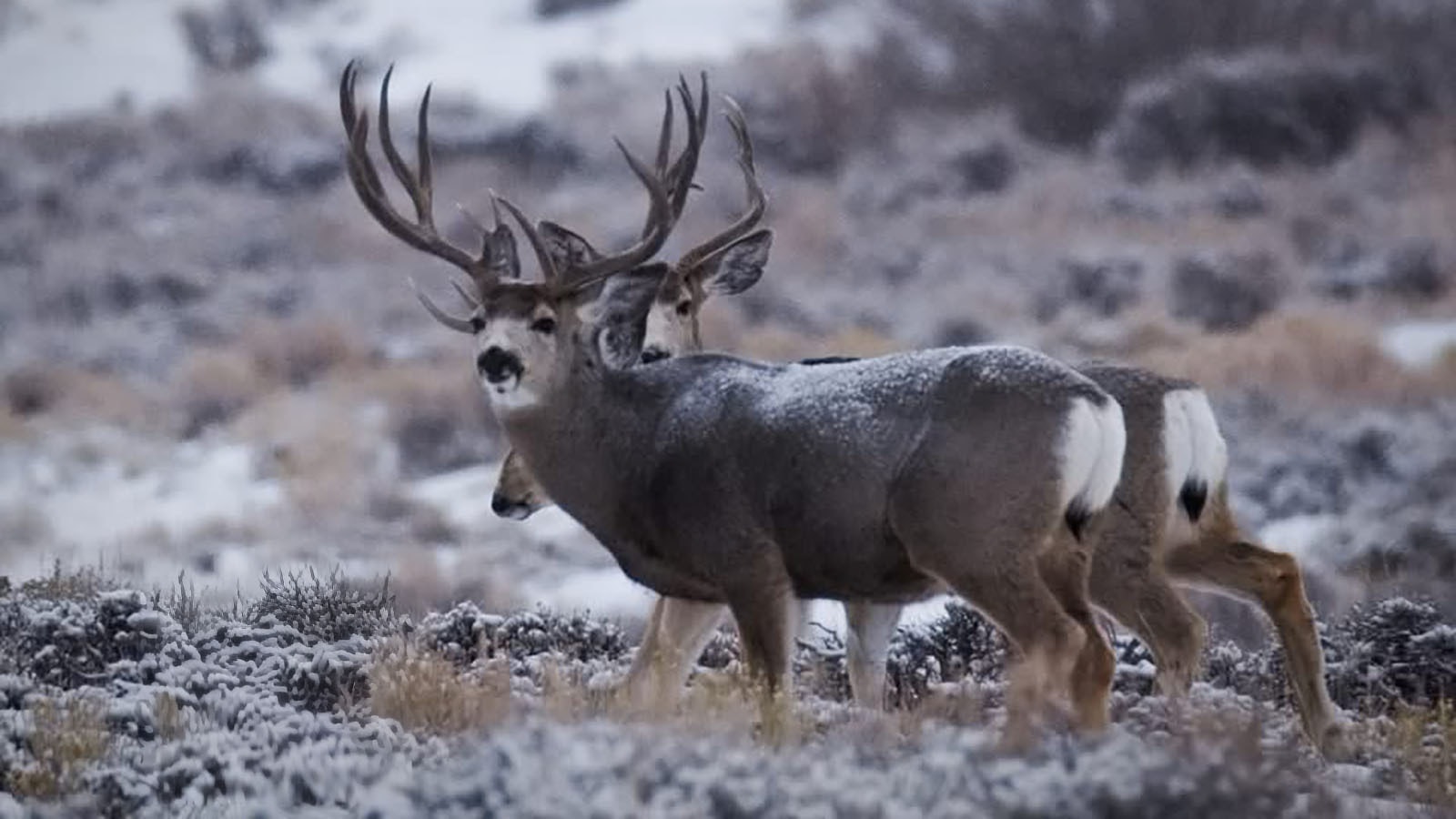The Bureau of Land Management (BLM) plans to proceed with the roundup of nearly 3,000 mustangs in central Wyoming — including rare curly-haired horses — despite a case against the roundup still pending in federal court.
Wild horse advocates filed a lawsuit against the BLM in the 10th Circuit Court of Appeals in Denver to halt the roundups. Attorneys from both sides presented oral arguments before the court’s three-judge panel in March, but the judges have yet to render their decision.
In a process that could take years to complete, the BLM plans to remove all free-roaming horses from the Great Divide Basin, Salt Wells Creek herds, along with a portion of the Adobe Town mustang herd, according to a BLM statement released on Thursday.
“All removed horses will be transported to BLM holding facilities. Upon arrival at the facility, they will be prepared for the agency’s wild horse Adoption & Sales programs. Wild horses that do not meet adoption age or temperament criteria may be shipped to public off-range pastures,” according to the agency.
Roundups Still On
A 2023 BLM decision to proceed with the roundups is still valid, unless and until the court renders a decision against it.
The plan is to start with the Salt Wells Creek herd, on July 15 at the earliest, BLM Rock Springs Field Manager Kimberlee Foster told Cowboy State daily.
“The 10th Circuit Court is well aware of our timeline,” she said.
If the court rules in favor of the wild horse advocates, the roundups will be halted, she said. But no horses that might have been captured up to the point would be set back free on the range.
Wild horse advocate and photographer Carol Walker told Cowboy State Daily that she and others are worried about the future of the horses they admire.
“I’m just sick about it. I love these horses,” Walker said.
Fate Of ‘Curlies’ In The Balance
Of special concern to wild horse advocates are rare curly-hairs horses, or “curlies.” Mustangs so named because of the unique curls in their coats, tails and manes.
The Salt Wells Creek horse herd includes one of a scant few pockets of curly-haired mustangs in the U.S.
That makes the herd worth preserving, wild horse advocates argue.
However, “there’s nothing in the Wild Horse Act that protects specific genetic traits,” Foster told Cowboy State daily.
She was referring to the federal Wild Free-Roaming Horse and Burros Act of 1971, which put the BLM in charge of managing those animals.

Longstanding Dispute Over Mustangs
There’s long been a fierce debate over whether the mustangs are truly wild, or essentially a feral invasive species on the rangelands they inhabit.
Some argue that mustangs encroach on ranchers’ grazing allotments and bully wildlife such as mule deer out of forage, water and habitat.
Mustang advocates argue that after living free on the range for countless generations, the horses are fully adapted wildlife and should be protected and conserved as such. They also claim that mustangs get scapegoated for the damage that cattle inflict on the arid rangelands.
Landowners Sue BLM Over Mustangs
From the BLM’s perspective, trying to manage horse herds in that part of Wyoming’s vast Red Desert country has become intractable.
The range that the herds occupy is in an area of “checkerboard” parcels of public and private land, Foster said.
As the BLM drew up plans to manage horses there during the 1970s and early 1980s, the agency entered into agreements with landowners – including the landowners’ consent to allow a few mustangs to occasionally stray onto their property.
“When HMAs (Herd Management Areas) were created in that area after the Wild Horse Act, they were created only with landowners’ consent,” Foster said.
However, from the landowners’ perspective, there were too many mustangs coming onto their property.
Landowners for years sued the BLM over the mustangs, Foster said.
In 2010, the landowners legally withdrew their consent to allow mustangs on their property.
From the BLM’s perspective, the area is no longer suitable for managing mustang herds.
‘Before They’re Gone’
Walker said that she and other wild horse advocates are livid over the BLM’s decision to proceed with the roundups and hope the 10th Circuit Court rules in their favor.
“It’s completely unconscionable that they’re going ahead with this,” she said.
“There’s a lot of foals still being born. This is just not acceptable to start roundups in this area, Walker added.
There might be only weeks left to admire the horses on the range before the roundups begin. That’s drawn numerous fans of the curlies and other mustangs out to the range, Walker said.
“Everybody and their brother is out there. People are really upset about this. They want to see the horses before they’re gone,” she said.
Mark Heinz can be reached at mark@cowboystatedaily.com.





